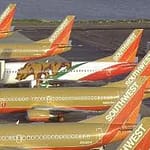Questions?
(888) 803-0200
learnmore@fieldlogix.com
We WILL NOT sell or share your info with anyone.
FieldLogix Blog
Fleet Tracking System with GPS Costs Less Than You Think
Fleet Tracking System with GPS Offers Quick ROI
In today’s tough economy, many small businesses are trying to survive the recession and are not too keen on spending their cash. So the question arises of the ROI of GPS Fleet Tracking. Is investing in a Fleet Tracking System with GPS worth it?
The purpose of a fleet tracking system is to increase productivity and cut costs. Because most of the cost-savings results of implementing a fleet tracking system are immediate and long-lasting – it ends up costing a lot less than you may think. With a GPS enabled fleet tracking system, you can see exactly what is happening when your trucks leave your sight. It’s like being a fly on the wall. For example, you can see exactly how much fuel is being wasted from unnecessary idle time.
Fleet Management Training at 2011 U.S. Work Truck Show
 Fleet Management Training 2011
Fleet Management Training 2011
The biggest Work Truck Show in the U.S. is going to be at the Indiana Convention Center in Indianapolis March 8-10, 2011. Work Truck Show 2011 will take place in conjunction with the 47th Annual National Truck Equipment Association Conference. Additionally the Green Truck Summit and other fleet management educational seminars will begin March 7, 2011. There will be several fleet management training sessions, including the following:
1) Fleet Management Symposium:
Designed for all fleet management professionals regardless of industry, this Symposium focuses on best practices and strategies that dramatically impact your fleet and shop financial, operational and productivity performances. Whether you operate a fleet of 10 or 10,000 units, this day-and-a-half intensive program will help you to reduce costs, increase efficiency and make your job easier to do.
6 Ways Fleets Can Burn Less Fuel
Fleet GPS Management System Data with Driver Training Cuts Fuel Costs
Here is a list of the best ways fleet managers can cut vehicle fuel costs.
- Educate your fleet management team to train your drivers. Successful fuel management starts with drivers. Proper training can improve fuel efficiency, reduce fuel expenses and vehicle emissions.
- Keep the load as light as possible. Excess weight places unnecessary strain on a vehicle’s engine and greatly affects its fuel efficiency.
- Use a fuel management system to lower fuel costs and increase productivity. The best systems are telematics enabled systems which overall fuel efficiency, vehicle performance, tracks fuel waste due to idling, speeding, etc., and identifies critical areas to improve efficiency and reduce fleet fuel costs and emissions. Fleet GPS management systems such as FieldLogix can save in wasted time and fuel every day.
How To Immediately Reduce Fleet Management Costs
mmediately Reduce Fleet Management Costs with the best GPS Fleet Management System
Modern fleet management tools and technology are changing the way fleet managers look at vehicle fuel consumption. Economic conditions, legal regulations, reduced margins and heavy competition have created a high level of urgency for all fleets to consume fuel in the most effective way possible. Regardless of size, every fleet must pay for fuel, and every penny counts.
All fleet owners and fleet managers seek cost-effective ways to optimize fleet fuel consumption. GPS fleet tracking technology can be one of the most cost effective means to optimize fuel consumption. You can immediately reduce fuel consumption by up to 20% by investing in and utilizing a fleet management system. The best fleet tracking systems, such as FieldLogix, can IMMEDIATELY REDUCE fleet operating costs and provide a positive return on investment (ROI) in less than 6 months.
CNN Says GPS Tech Can Fuel Jobs and Internet Revolution
Fareed Zakaria, editor of Newsweek and host of Global Public Sphere (GPS) for CNN Worldwide answered questions about prompting job creation in the U.S. in a session of the show broadcast Oct 31. Among the fields Zakaria discussed as having huge potential for growth was Global Positioning Satellite (GPS) technology which he credits as the fuel behind the “next internet revolution.” Zakaria, who is among the best respected financial commentators in journalism today, suggested that America needs more investment in industries that will continue to shape the way society works and people communicate, like GPS systems, in order to reclaim jobs that have gone to other countries.
Zakaria says that the key to getting growth and middle-class jobs back is that we make massive investments, investments in technology, investments in research and development, investments in infrastructure. That is in a sense, investing in the middle class, because that is investing in the industries of the future, the industries that will create middle-class jobs. “Perhaps the most intelligent investment we can make is in human capital, particularly in talented people in science, math and computers,” said Zakaria.
Fleet Fuel Consumption a Focus at Agrion Green Fleet Conference
recently had the pleasure of participating in a panel discussion at Agrion’s Green Fleet Conference in Silicon Valley. The purpose of the conference was to discuss the technologies currently in use to reduce conventional fuel consumption. The key take away from the conference was that each fleet must consider its own unique circumstances before determining the best method to green its fleet. Not all solutions will work for everyone, and each have their own advantages and disadvantages. The fleet should take a long-term perspective when evaluating its options and potential cost savings.
The primary technologies discussed included telematics, hybrid and electric vehicles, and alternative fuels.
Telematics
Telematics was discussed as a method to retrofit conventional fuel vehicles with technology in order to monitor driver habits. The primary poor driving habits that emit excessive carbons and waste fuel include speeding, idling, hard braking, and unnecessary acceleration. GPS fleet tracking systems have been monitoring these activities for years, but our opinion was that it is also important to emphasize the costs associated with these activities and provide some level of driver training and feedback. By focusing on the costs and emissions associated with idling and speeding, fleet managers are much more motivated to take action to correct these habits. By providing driver training and feedback, drivers are much more aware of their impact on the environment and their employer’s bottom line. The use of telematics is a relatively inexpensive method to reduce fuel consumption and emissions.
The Best Vehicle Tracking GPS Systems
The best GPS vehicle tracking systems are all user-friendly. Users with limited computer skills can easily learn how to master the systems and produce results quickly. There isn’t a one-size-fits-all GPS tracking solution. Depending on your situation, there are a number of things you should look for.
1) If you are going to be tracking a person or a small piece of property, ensure that you look for a small, inconspicuous, easy-to-install tracker.
2) For tracking a personal vehicle, you will want something that will track your vehicle both indoors and outdoors, and one that will run on the car’s battery so you don’t have to worry about replacing a dead battery.
3) If you are concerned with tracking a fleet of vehicles, you will need a tracker that will allow you to customize settings for different vehicles, that provides you with convenient text message and email alerts. Trackers like the FieldLogix GPS Fleet Management boast each of these features plus provides in-depth performance metrics, identifies problems such as excessive speeding and idling, inaccurate time-sheets, unauthorized vehicle stops and personal vehicle use. Fleet GPS tracking systems should always be integrated with Garmin navigation and Google Maps.
How To Improve Customer Service with Fleet GPS Vehicle Tracking

Garmin GPS Tracking on iPhone
Garmin GPS Fleet Tracking System Can Be Accessed From Your iPhone, Android or Blackberry
Access the GPS Tracking System Mobile Site From Your Cel Phone – Anytime, Anywhere. Giving you current fleet vehicle status and locations in real-time 24/7.
GPS Fleet Tracking System Solutions – Easy Dispatching
Find the Closest Vehicle in One Click GPS Fleet Management Systems
- Reduce the Amount of Time in Takes for Dispatcher’s to Route the Closest Driver.
- Help Drivers Get to Their Destinations Without Hitting Traffic or Getting Lost.
- Reduced Response Time Means Happier Customers and More Revenues.
- Send New Job and Job Changes Directly to the Driver’s GPS Fleet Tracking Device.
- Monitor Driver’s Status as They Complete Work.
- Instantly Text Drivers On The Go.
Better Fleet Management with Real-time GPS Vehicle Tracking Systems

Real-time GPS vehicle tracking systems keep fleet operations lean and GREEN. The best GPS fleet tracking systems use telematics technology to increase daily fleet deliveries and stops, dramatically reduce overtime costs, improve driver safety, and cut fuel costs. Plus it’s better for the environment.
New GPS Tracking System Changes How Airline Pilots Fly

Southwest pilot Kent Perry said the changes are based on the same global positioning satellite (GPS) technology you might be using in your car, only more sophisticated. Now the landing points can be programmed into the plane’s computer before takeoff. Because of precise GPS data, the plane “knows” its position and altitude at all times. I’m not touching the throttles or the yoke,” Perry says as we “fly” over the lights of Chicago. “I’m basically running it with this panel up here.” The plane uses the information to approach the runway, and Perry takes over just before touchdown.
